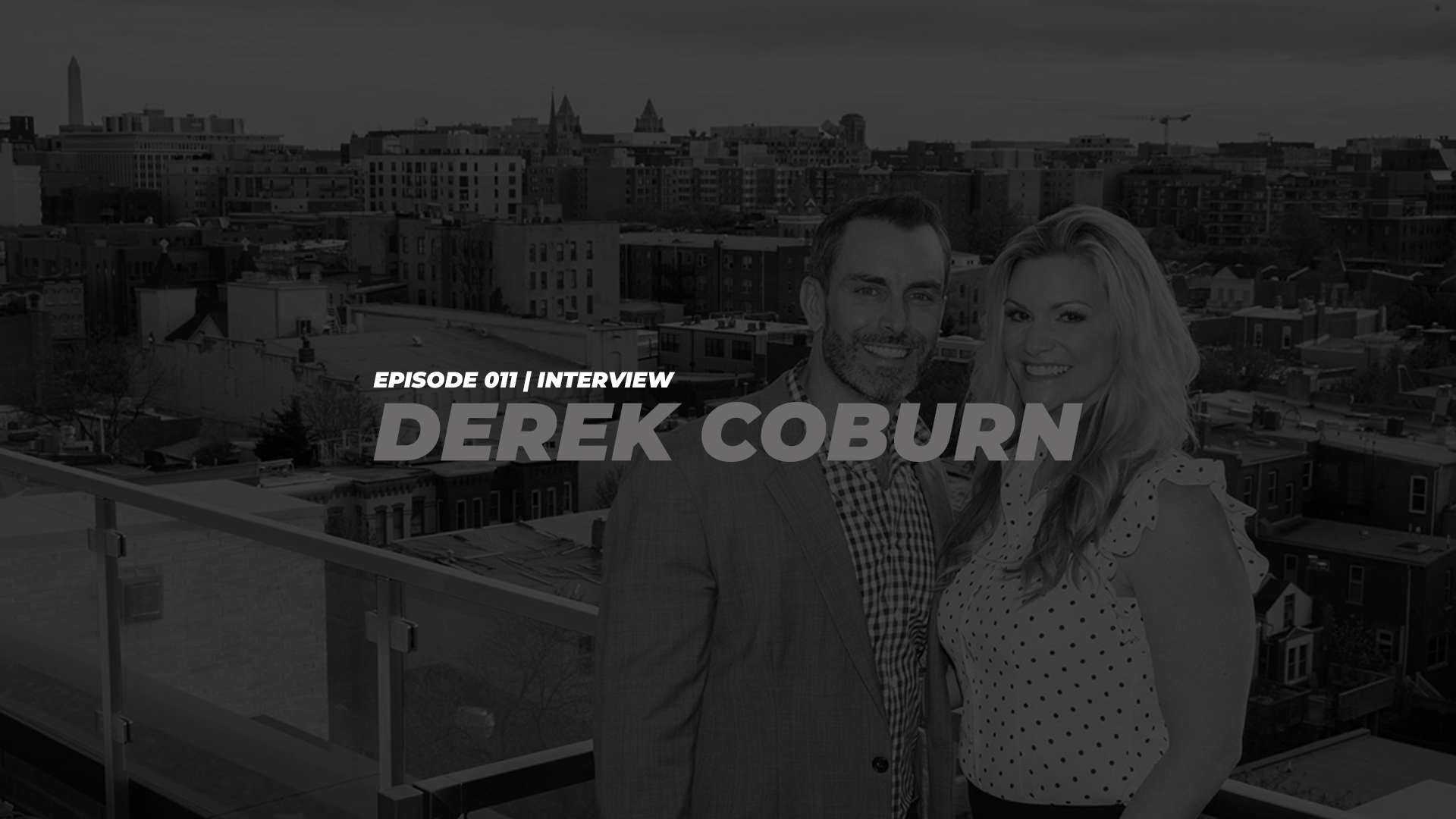Derek Coburn is author of Networking Is Not Working and the co-founder and CEO of CADRE, an un-networking community in Washington, DC, which currently supports over 100 CEOs and business leaders.
Derek began his career in the financial services industry. When the economy took a turn for the worse, he had to devote more attention to his existing clients and had less time for “traditional networking”. That sparked an idea, and he began to create an informal “un-networking” group consisting of his best clients and other top professionals. Derek’s passion for connecting remarkable professionals led him to start CADRE and write his first book.
As an out-of-the box, entrepreneurial, ADD diagnosed teenager, Derek started a comic book business that had him earning thousands of dollars a month while in high school. His ability to choose love over fear afforded him a successful career in the financial services industry and has flourished into writing a book and creating an un-network for hundreds of CEOs and business leaders.
Derek is an incredible example of how courage stretches.

Your teenager is growing up in a world that is becoming increasingly competitive and comparative. It is easy to for them – for any of us – to believe that the ones who have found success or happiness are better than, stronger than, smarter than, or privy to something magical – certain strengths or qualities that are reserved for the lucky few. The truth is that none of us are born with the ‘success’ gene or the ‘happiness gene’. There are many things that lead to success and happiness, but one of the most powerful of these is courage.
Behind so many brilliant successes are failures, rejections, and unexpected turns. Often many. Without exception, there is also courage. Mountains of courage. Courage to keep going, to find a different way, and of course the courage to try in the first place.

One of the most important things for your teenager to know is that courage doesn’t always feel like courage. From the outside, courage often looks impressive and powerful and self-assured. Sometimes it might look reckless or thrilling. From the inside though, it can feel frightening and unpredictable. It can feel like anxiety, or fear, or rolling self-doubt. Courage can be a trickster like that: it often looks different from the outside to the way you would expect it to feel on the inside. This is because courage and fear always exist together. It can’t be any other way. If there is no fear, there is no need for courage.
Courage isn’t about something magical that happens inside you to make you “not scared.” It’s about something magical that happens inside you to make you push through fear, self-doubt, anxiety, and do the things that feel hard or risky or frightening. Sometimes, courage only has to happen for seconds at a time – just long enough to be brave enough.
There’s something else that you need to know about courage: you don’t always see the effects of it straight away. Courage might mean being kind to the new kid in class, trying something new, speaking up for someone or something you believe in. Often, these things don’t come with fireworks or applause. In fact, they rarely do. The differences they make can take time to reveal, but when actions are driven by courage, the differences those actions make will always be there, gently taking shape and changing their very important corners of the world in some way.
Comfort zones are beautiful things but nothing ever grows there. Sometimes “safe and certain” might be the perfect place for you to be, but so much growth and the things that will enrich you will happen when you let go of the handrail, even if just for seconds at a time.

INTERVIEW | DQ
Here are some things to think about to help your teenager nurture their own courage:
Give your teenager permission for imperfection.
Failure and rejection are often a sign that you’ve done something brave. Every experience gives you new information and new wisdom that wouldn’t have been there before. It’s why only the brave ones get there in the end – they have the knowledge, wisdom, and experience that can often only be found when you land badly – sometimes more than once. Give yourself space for imperfection – it’s a growth staple.
Your student won’t always feel ready. That’s why it’s brave.
It’s okay to hang on while you’re getting comfortable – while you are working on a plan, fanning the brave spark inside of you (and it’s always inside you), but then there will be a time to let go. When this time comes, it won’t always feel like readiness or certainty. That’s what makes it brave. And a little bit magical.
Encourage your teenager to try something new.
Cheer on your student to do something that pushes them to the edges of their spiritual or physical or emotional self: drama, sport, music, public speaking, serving someone in need. Anything that will help to nurture the truth to life that they are strong, powerful, that they can cope, and that they are not as fragile as they might feel sometimes will help to nurture their brave heart.
Give your student space for courage of thought.
Courage isn’t only about pushing against your own edges. Sometimes it’s about pushing against the friends who might steer you off track, the limiting expectations of others, the media, the majority, the world. Too many times, creative, change-making, beautifully open minds have been shut down in the name of compliance. There is nothing wrong with questioning – it opens hearts, minds, and mouths – and what’s important is that the questioning is done respectfully. One of the reasons the world is capable of great things is because young minds who are brave enough to challenge the way things are and to want something better grow into adult minds who make it happen. Ask for their opinions and let them know they can disagree with yours. Some of the world’s very ideas have often started with small ideas that made no sense at all at the time.
Be the example.
Everything you do is gold in their eyes. Talk to them about the times you feel nervous, or the times you’ve said ‘no’ or ‘yes’, when everyone else was moving in the opposite direction. Talk to them about the times you’ve pushed through fear, exhaustion, sadness, anger, to do the thing that was right for you. Talk about your risky ideas, the times you thought differently, did differently, and the times you felt small but did something big. Let them feel that the brave in you, is in them too.
Give space for their intuition to flourish and teach them how to use it.
Intuition is not magic and it’s not hocus-pocus. It’s the lifetime of memories, experiences, and learnings that sit somewhere in all of us, just outside of our awareness. Gut feelings and heart whispers all come from tapping into this pool of hidden wisdom. Scientists have found the physical basis of ‘gut feelings’. The innate fear response, or the feeling that something isn’t right, is heavily influenced by messages sent along the vagus nerve from the stomach to the brain. The vagus nerve is the longest of twelve pairs of nerves that leave the brain. It sends messages from the belly to the brain, touching the heart along the way. When the vagus nerve is cut, the loss of signals from the belly changes the production of certain neurotransmitters in the brain. (Neurotransmitters help to transmit messages between brain cells. Everything we do depends on these messages flowing properly.) The hard part – and the part that can take a lot of courage – is acting on gut feelings or intuition and doing what feels right, regardless of the noise that tells us to do otherwise. Encourage them to take notice of when something feels right or wrong for them. Sometimes this means giving them permission to let go of needing to justify or explain the reason they feel the way they do. ‘When you are still and quiet, what does your heart tell you?’ ‘Do you have a feeling about what you should do? Sometimes those feelings come from the part of you that knows what’s best. Taking notice of them can be really valuable.’
It’s never too late to change. It’s never too late to change direction, change friends, or change your mind. It’s so easy for courage to turn cold when a decision or choice feels final. All experiences bring new wisdom, and if that new wisdom means the decision stops feeling right, that’s okay. There will a plan B, a back door, a way out or a way back up.
But first comes the brave decision to start.
Choose love over fear.
Choose courage.
For God has not given us a spirit of fear and timidity,
but of power, love, and self-discipline.
2 Timothy 1:7 NLT
Question: In what area(s) of your life do you find yourself the most fearful and in need of courage?


